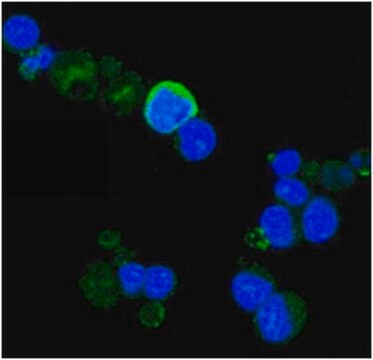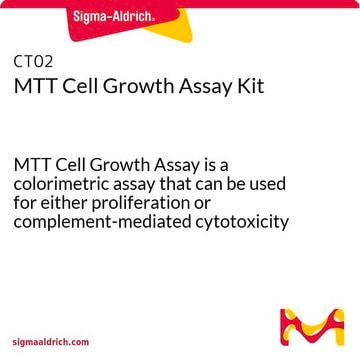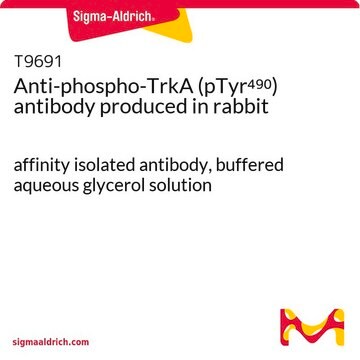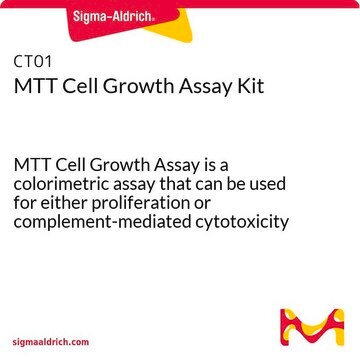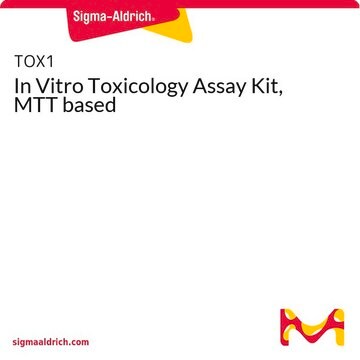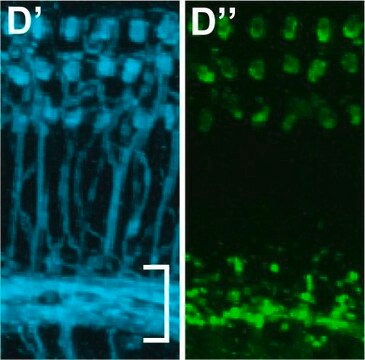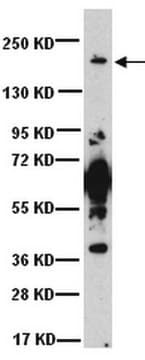06-574
Anti-TrkA Antibody
Upstate®, from rabbit
Synonym(s):
Neurotrophic tyrosine kinase receptor type, Oncogene TRK, TRK1-transforming tyrosine kinase protein, high affinity nerve growth factor receptor, neurotrophic tyrosine kinase, receptor, type 1, tyrosine kinase receptor A
About This Item
IP
WB
immunoprecipitation (IP): suitable
western blot: suitable
Recommended Products
biological source
rabbit
Quality Level
antibody form
purified immunoglobulin
antibody product type
primary antibodies
clone
polyclonal
species reactivity
human, mouse, rat
manufacturer/tradename
Upstate®
technique(s)
immunocytochemistry: suitable
immunoprecipitation (IP): suitable
western blot: suitable
isotype
IgG
NCBI accession no.
UniProt accession no.
shipped in
wet ice
target post-translational modification
unmodified
Gene Information
rat ... Ntrk1(59109)
General description
Specificity
Immunogen
Application
4 μg of a previous lot immunoprecipitated TrkA from 500 μg of PC-12 RIPA lysate.
Immunocytochemistry:
10 μg/mL of a previous lot of this antibody showed positive immunostaining for TrkA in PC-12 cells fixed with 4% paraformaldehyde.
Neuroscience
Neurotransmitters & Receptors
Neurodegenerative Diseases
Quality
Western Blot Analysis:
0.5-2 μg/mL of this lot detected TrkA in RIPA lysates from human A431 cells; a previous lot detected TrkA in mouse 3T3 and rat PC-12 cell lysates.
Target description
Linkage
Physical form
Storage and Stability
Handling Recommendations: Upon receipt, and prior to removing the cap, centrifuge the vial and gently mix the solution. Aliquot into microcentrifuge tubes and store at -20°C. Avoid repeated freeze/thaw cycles, which may damage IgG and affect product performance. Note: Variability in freezer temperatures below -20°C may cause glycerolcontaining solutions to become frozen during storage.
Analysis Note
Positive Antigen Control: Catalog #12-301, non-stimulated A431 cell lysate. Add 2.5µL of 2-mercaptoethanol/100µL of lysate and boil for 5 minutes to reduce the preparation. Load 20µg of reduced lysate per lane for minigels.
Other Notes
Legal Information
Disclaimer
Not finding the right product?
Try our Product Selector Tool.
Storage Class Code
12 - Non Combustible Liquids
WGK
WGK 1
Flash Point(F)
Not applicable
Flash Point(C)
Not applicable
Certificates of Analysis (COA)
Search for Certificates of Analysis (COA) by entering the products Lot/Batch Number. Lot and Batch Numbers can be found on a product’s label following the words ‘Lot’ or ‘Batch’.
Already Own This Product?
Find documentation for the products that you have recently purchased in the Document Library.
Our team of scientists has experience in all areas of research including Life Science, Material Science, Chemical Synthesis, Chromatography, Analytical and many others.
Contact Technical Service
